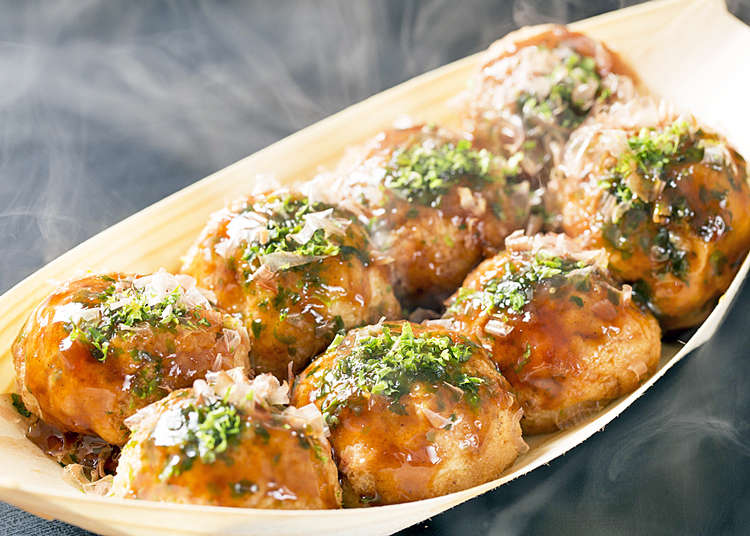
Beginning with Washoku (Japanese food) registered as a UNESCO Intangible Cultural Heritage, Japanese food is delicious no matter what you eat! That is what just about everyone, including foreign visitors to Japan, thinks.
There are, however, some who ask “Can you eat that!?” and “Is that the way you eat that??” Cultural differences often give rise to such exclamations when foreign visitors to Japan encounter certain dishes.
For this article I asked some American men and women who have lived in Japan for more than three years and whom I interviewed in the past, what foods seemed unimaginable to them or were difficult to eat and was shocked by their replies, which I will explain here. (The opinions expressed are those of the individual respondents).
Natto: A powerful smell and a weird texture...
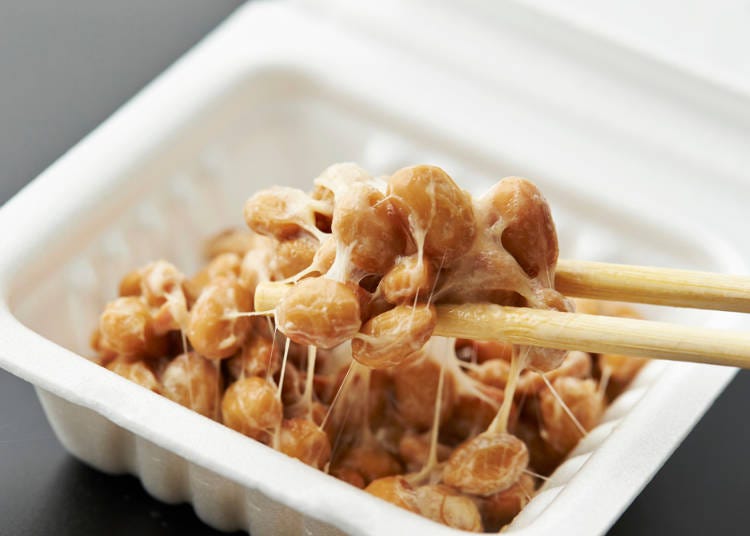
When talking about Japanese food, you have to include natto. Even some Japanese are put off by the smell, stickiness, and sight of natto. So it is no surprise that it is mentioned as a food some can’t eat.
Nevertheless, the funny thing about natto is that quite a few foreigners actually do like it very much.
“It’s fantastic when served on white rice,” was one opinion of an individual who appreciated it more than many Japanese. There are all sorts of fermented foods in Japan and natto, being one of them, is a type not likely to be found elsewhere in the world, giving it a particular taste that perhaps needs to be acquired.
Shirasu: Live Whitebait is too scary to eat...
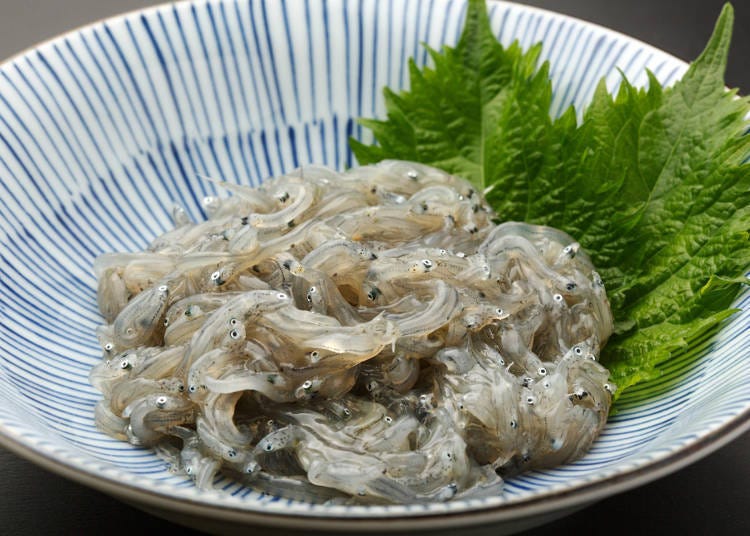
“In Japan you eat live whitebait, right? I couldn’t believe that you eat the eyes and everything...I still can’t eat it. I’m too afraid.”
I was a bit surprised by this food, but I guess live whitebait is a bit too grotesque for some. Some people eat boiled and dried sardines, shishamo [smelt] and round herring, heads and all, but there are those who cannot.
Normally in Japan, though, most people don’t bother to remove the head or eyes and eat everything without a thought about it. That seems hard to believe for some, though. When you think about it, I suppose it does seem a bit cruel to some.
Shirako (Cod Milt): Once I knew what it was I couldn’t eat it...
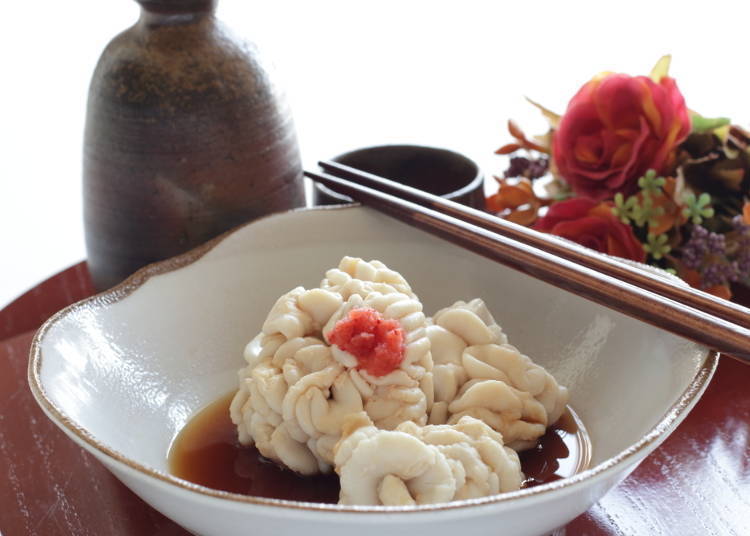
“I was surprised both by how it tasted and looked. To tell the truth, I didn’t think it tasted all that good. When I learned what part of the fish it was, I could no longer eat it.”
To many Japanese cod milt is an exquisite delicacy, but to those unfamiliar with it, it can be a little off-putting. It has an indescribable, melt-in-your-mouth texture the moment you eat it, and it is that which makes shirako so delicious. I never imagined that it would be something anyone would find hard to eat.
The white shape of shirako is the sperm sacs of the male cod. I heard others also say that once they knew what shirako was they could no longer eat it.
Ikizukuri (Live Preparation of Sashimi): Too horrible and shocking
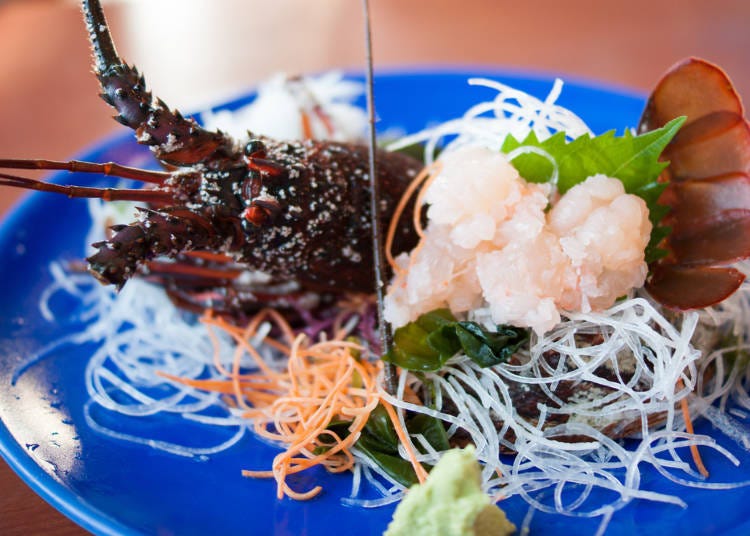
“The biggest shock I had was seeing ikizukuri. I mean, the fish was still alive! I was shocked because it seemed so cruel. I respect Japanese culture, but this is one thing where I draw the line.”
For Japanese accustomed to ikizukuri, it is felt that it shows how really fresh the fish is, but I guess it is understandable that it might be a shock to someone who has never seen it before. No doubt that person would also have trouble with odorikui [eating live seafood while it is still moving] for the same reason.
Anko (Red Bean Paste): I love sweets, but...
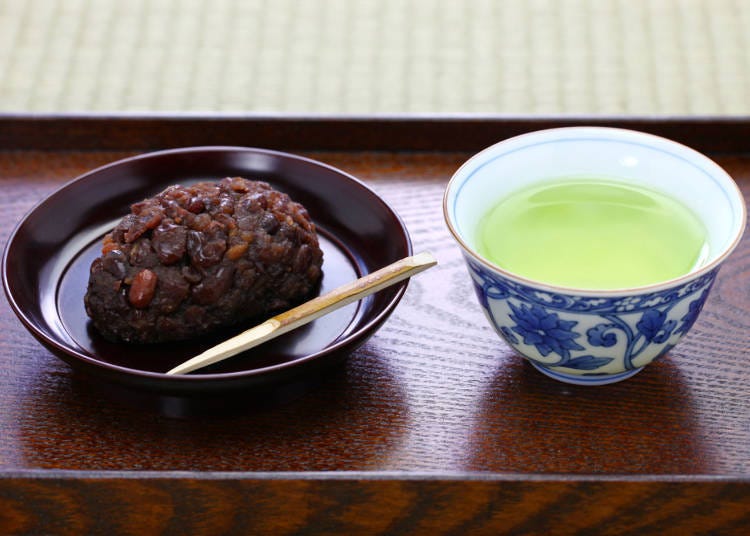
“Anko is sweet. Actually I was surprised because it is too sweet! I thought I was used to all kinds of sweets because there are so many kinds of cakes and ice cream in America, but anko is something altogether different. The flavor seems to last forever in the mouth.”
I was surprised to hear that someone from America, a country noted for its many kinds of sweets, could not eat anko because it was too sweet. Others who also find it hard to eat anko have described its sweetness as “feeling like it will burn the throat”.
Takoyaki (Octopus Dumpling): It's so popular but I just can't handle it
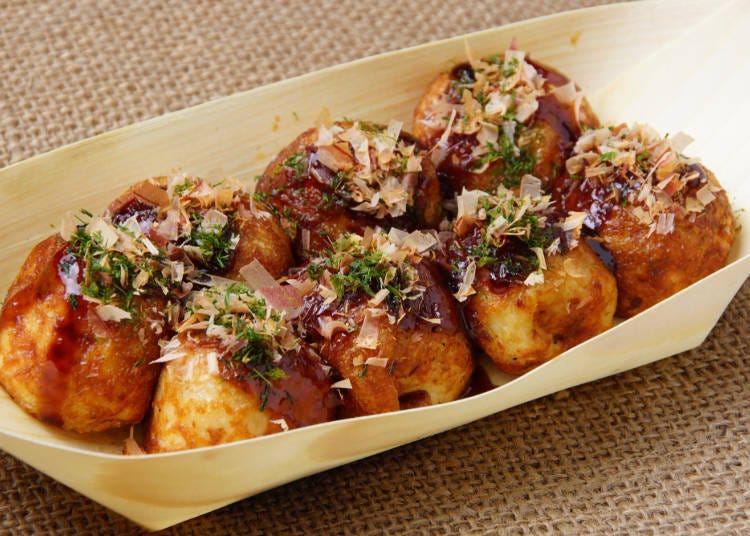
The last dish, unbelievably, was this. Takoyaki is a flour-based dish as popular as okonomiyaki [savory pancake containing a variety of ingredients in a wheat-flour-based batter]. I was always under the impression that many foreigners liked this...so I was surprised when I heard what they had to say about it.
“I can’t eat octopus! I mean, takoyaki has really big pieces of octopus in it, right? There’s no way I’m going to eat that!”
Several of the Americans I interviewed this time said that they could not eat octopus or squid and for that reason they did not like takoyaki. The reason is because they said that it looked too slimy and these were foods they did not eat in their own country.
What did you think? I think the reactions towards certain Japanese food in this article came as a bit of a surprise, at least to me they did. I think it comes down to “eating live fish”, “an abundance of fermented food items”, in other words, certain aspects of Japanese food culture, that makes certain dishes hard for some people to handle.
But one thing everyone did agree on is that “Japanese rice is really delicious”. While there are certain dishes that some foreigners just can’t handle, most Japanese dishes are very popular. One positive point made is that there are many unimaginably delicious dishes in Japan, too! So I’ll close with that one final point.
- Area
*Prices and options mentioned are subject to change.
*Unless stated otherwise, all prices include tax.
Popular Tours & Activitiess
Recommended places for you
-

Naritasan Shinshoji Temple
Temples
Narita
-

Ameyoko Shopping Street
Old Towns (Shitamachi)
Ueno
-

Ueno Zoo (Ueno Zoological Gardens)
Zoos, Aquariums & Botanical Gardens
Ueno
-

The Imperial Palace
Other Architecture
Tokyo Station
-
Events

Tokyo Tower
Landmarks
Roppongi
-

Tokyo Disney Sea®
Theme Parks
Chiba Suburbs
-
Ad

Complete Guide to Ueno's National Museum of Nature and Science, the Perfect Place to Visit on Rainy Days or With Children
-

Japan’s Shinkansen Is About to Change Travel in an Unexpected Way
by: Guest Contributor
-

Jujutsu Kaisen Takes Over JR East With a Wrapped Shinkansen This Winter
by: Guest Contributor
-

Make Your Japan Trip Unforgettable! Explore "OSHI MAP" – Now Free and Unlimited
by: Guest Contributor
-

Only in Tokyo? A Legendary Manga Artist's New Masterpiece Is Hiding Underground
by: Guest Contributor
-

New in Ginza! Air BicCamera Ginza Opens with a Faster, More Convenient Shopping Experience
by: Guest Contributor
Inspiration for Accommodations
-

Enjoy Mt. Fuji from the Comfort of Your Room! Recommended Ryokan with Mt. Fuji View
-

Stay Near the Cherry Blossoms! Hotels for Cherry Blossom Viewing in Tokyo
-

Family-Friendly Hotels with Free Shuttle to Disneyland: Convenient Access for a Magical Stay
-

Top Ranked Hakone Hotels with Mt. Fuji View: Enjoy Stunning Scenery from Your Private Space
-

Convenient Tokyo Hotels with Airport Shuttle: Ideal for Families and Heavy Luggage
-

Stunning Tokyo Tower View Hotels: Enjoy Spectacular Scenery from Your Private Space
-

Convenient Asakusa Hotels with Kitchens: Ideal for Extended Family Visits
-

Experience Luxury: Hakone's 10 Best Five-Star Accommodations
-

Enjoy Mt. Fuji Autumn Leaves! Top Hotels Near the Popular Autumn Leaves Corridor
-

Experience Hakone Fall Foliage from Your Room with Stunning Views
-

Ikebukuro Dining: 3 Best-Valued, All-you-can-eat Lunch Spots! Cheese, Meat and Kushiage for Under US$20!
-

Easy Day Trip from Tokyo! Ultimate Sightseeing Guide for Hakone & Lake Ashinoko!
-

Ueno Station Area Guide: Fun Ways to Explore Tokyo's Popular Destination (Area Map & Sightseeing Tips)
-

Ginza's Hidden Gems: Three Quirky Must-Visit Restaurants
-

[MOVIE] Tokyo Shibuya|Shibuya Station Area Map & Sightseeing Information
-

Healthcare in Japan for Tourists: What to Do When You Get Sick or Injured in Japan
- #best ramen tokyo
- #what to buy in ameyoko
- #what to bring to japan
- #new years in tokyo
- #best izakaya shinjuku
- #things to do tokyo
- #japanese nail trends
- #what to do in odaiba
- #onsen tattoo friendly tokyo
- #daiso
- #best sushi ginza
- #japanese convenience store snacks
- #best yakiniku shibuya
- #japanese fashion culture
- #best japanese soft drinks












